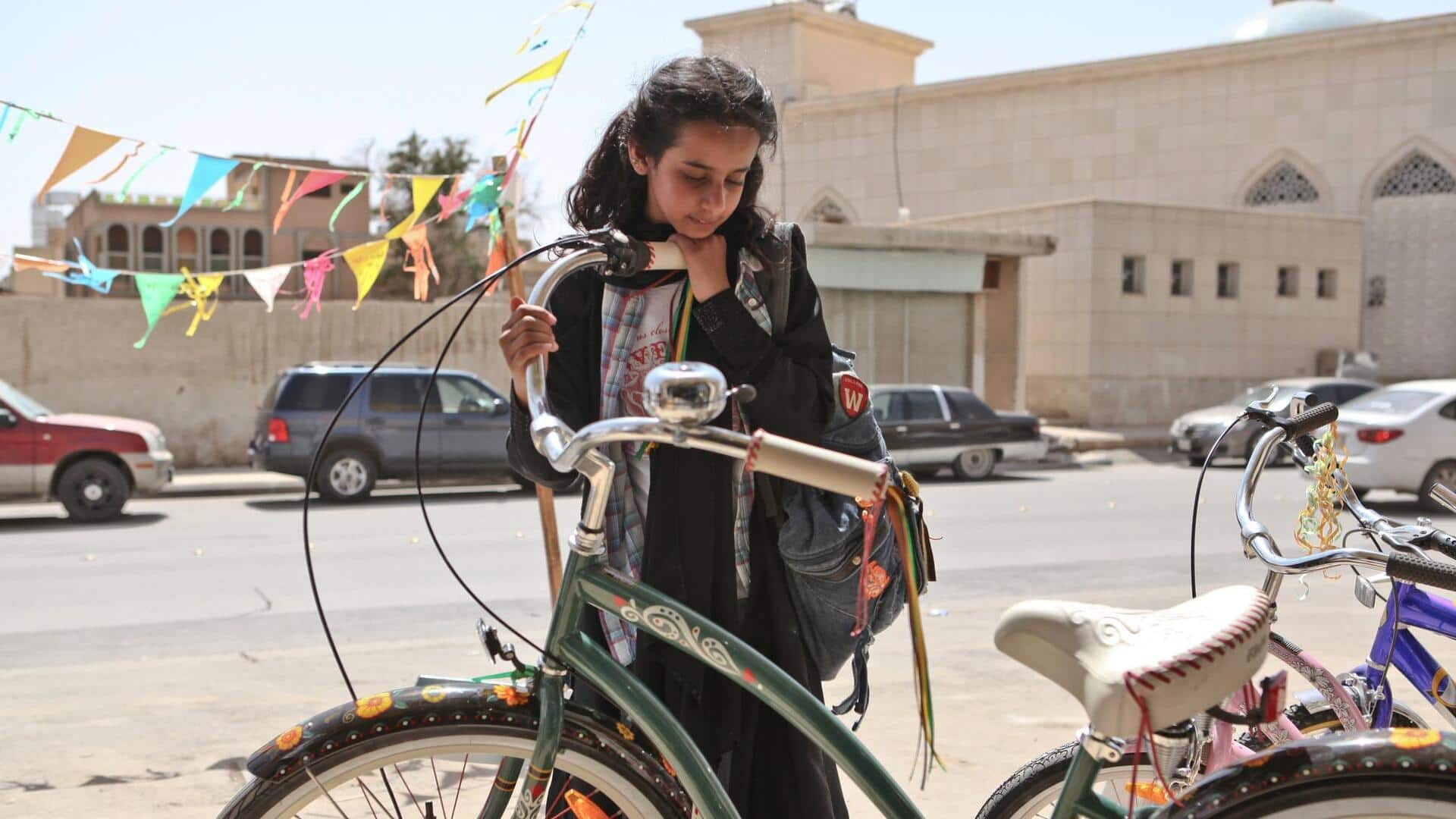
#NewsBytesRecommends: 'Wadjda'—explorative meditation of nonexistent female freedom, authority, tragic lives
What's the story
Wadjda—streaming on MUBI and directed by Haifaa al-Mansour—is the first film to be entirely shot in Saudi Arabia, an achievement bejeweled with considerable significance. In a country where women can hardly step out sans male relatives and freedom is mostly an illusion, a woman being at the helm of a female-centric story is an awe-inspiring accomplishment, a beacon of spirit, hope, and female solidarity.
Plot
Make yourself familiar with storyline first
The film follows Wadjda, a 10-year-old growing up in Riyadh and staying primarily with her mother. Born and brought up in a nation where women's freedom, nay, even their existence, is condemnable, she harbors a dream to own and ride a bicycle to defeat her friend Abdullah. Heartbreak abounds when she realizes women aren't allowed to do so, lest it may affect their virginity.
Protagonist's portrayal
Rebellion and quiet unrest boils inside central character
The first time we meet Wadjda (Waad Mohammed), we instantaneously notice a rebellious streak courses through her—waiting to pop out of her veins at the first opportunity. She appreciates music, tries to defy orthodox customs in her own ways, and sells bracelets—if she were a boy, her potential would be limitless. But she languishes in a country where women and objects are heartachingly synonymous.
Women at the forefront
No important male character, yet, they control plot's events
Irony cuts through you upon realizing that Wadjda is populated by the "second gender"—most of the characters are women or young girls, and men only make fleeting appearances. However, despite being nonexistent in the frames, they rule women's lives with an iron fist—whatever they can (or mostly cannot) do is threaded with patriarchy. It's men's world, and they are barely a part of it.
Her mother
Another important case in point: Wadjda's conflicted mother
Apart from Wadjda, another central character is her mother, essayed by Reem Abdullah. Her life is a microcosmic representation of the lives of all women her age—she ponders upon buying a dress not because she wants to but because it may entice and bring her estranged husband back. While you can sense whiffs of rebellion in her, she is a prisoner of her fate.
Themes
No unnecessary preaching, film never sags
Wadjda is brave yet sublime, and there's a sense of fire and rage that keeps simmering under its surface throughout. Neither does it (even once) resort to sermonizing viewers, nor does it throw its numerous themes in your face, and yet speaks to you through the power of honest, sincere, and profound storytelling that emanates naturally from the sensitivity of the subject at heart.
Villains
Who is the real villain? Men, women, or patriarchy
Wadjda doesn't actively try to portray any one character as a villain, though there are obvious allusions toward Wadjda's hypocritical teacher and her father, who seeks to remarry because he desires a male child. Even then, the primary nemesis of the women—and the entire country—is the deeply-rooted patriarchy that is almost sown into its very soil, making people a product of their appalling circumstances.
Verdict
For all aforementioned reasons and more, watch 'Wadjda'!
Wadjda reminded me of multiple female-centric stories, such as Farha, Jaya Jaya Jaya Jaya Hey, The Great Indian Kitchen, and The Breadwinner. While women scramble for equal opportunities in all, Wadjda's condition is the most heartbreaking one. It can be fixed with a simple bicycle, but female freedom is a mirage in the barren, vast stretch of droughty desert that is Saudi Arabia.